Inventor looks to generate waves of interest
Updated: 2014-05-12 07:36
By Sun Li and Hu Meidong (China Daily)
|
||||||||
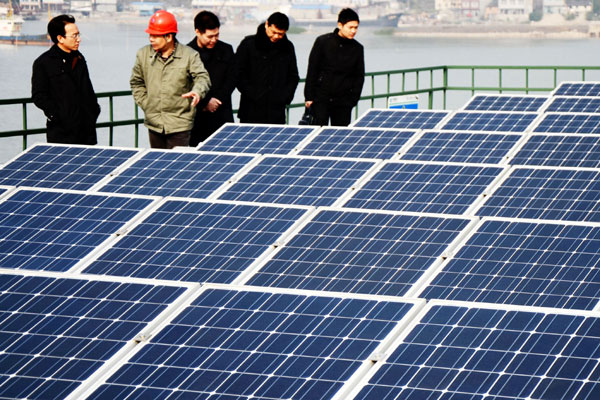 |
|
A technician explains photovoltaic power generation to visitors at the Jiangxia wave-power generation station in Wenling, Zhejiang province. The station is the first of its kind in China, and is involved in various forms of clean energy, including wave, solar, and wind power. LONG WEI/CHINA DAILY |
Walls of water
Wu said his design is the result of more than a decade of research, but when he first started the project, the former teacher had no practical experience in the field.
In 2010, Wu quit his job as a chemistry teacher in Ganzhou, Jiangxi province, and moved to Xiamen to open a business selling a mosquito repellent he had invented. He quickly became fascinated by the city's picturesque coastal views and fell in love with the vast expanse of ocean.
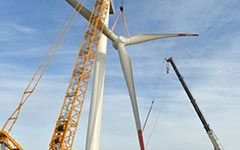 |
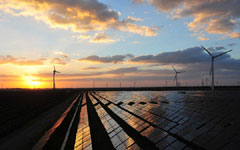 |
"It was a flash of inspiration. I suddenly realized that I wanted to learn about the country's ocean-energy resources," he recalled, adding that once the initial excitement had abated, doubts surfaced and he was unsure if he would ever complete the project.
Wu spent almost all his spare time reading through archival material and studying books related to energy. His research convinced him that wave power could be far more reliable than other technologies if used correctly.
Wave generators have an advantage over solar technology because they don't have to contend with inconveniences such as overcast skies and can operate 24 hours a day. Energy derived from waves also eclipses wind power because its useful output, which helps to determine the efficiency with which energy is emitted, is far higher, Wu said.
After studying the workings of wave-power generators on the Internet, Wu embarked on his own project in 2003. "Although I didn't travel abroad to consult with foreign experts, I learned about the wide range of concepts and product patterns online," he said.
"But I didn't have as much money as other projects, so I had to be creative to improve the product and reduce the cost," he said.
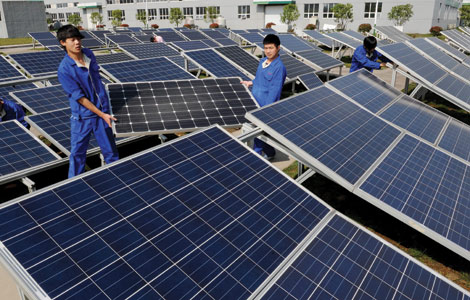
 Jinko ups solar footprint in Chile
Jinko ups solar footprint in Chile
 As World Cup tickets become available, it’s a seller’s market
As World Cup tickets become available, it’s a seller’s market
 More China FDI will not change Argentinean economy
More China FDI will not change Argentinean economy
 Yuesai Kan speaks at the Ellis Island gala
Yuesai Kan speaks at the Ellis Island gala
 Surge of visitors to Shanghai museum before relocation
Surge of visitors to Shanghai museum before relocation
 Mothers: Lifelong responsibility and unconditional love
Mothers: Lifelong responsibility and unconditional love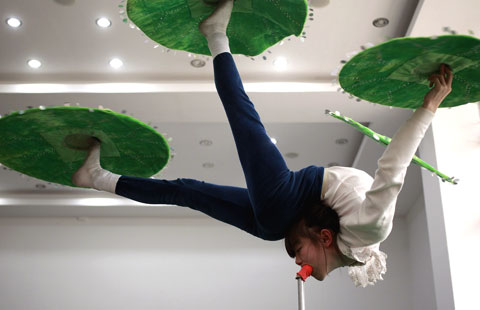
 Life's a whirl for top-flight acrobats
Life's a whirl for top-flight acrobats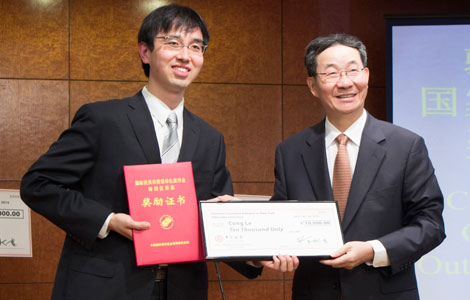
 Outstanding overseas students acquire rewards
Outstanding overseas students acquire rewards
Most Viewed
Editor's Picks

|

|
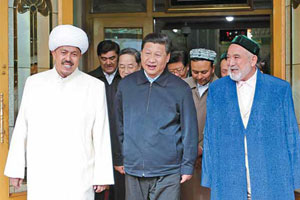
|

|

|

|
Today's Top News
9/11 remains returned to World Trade Center site
Drilling in Chinese waters: official
US regulator will hear appeal on 'Big 4' Chinese affiliates
No recognition of eastern Ukrain referendums - US
Michelle Obama slams kidnapping of Nigerian girls
Two dead, one missing in Virginia hot air balloon fire
China: Stop harassing oil rig in Xisha Islands
Former Time Warner chief named Clippers' interim CEO
US Weekly

|

|







